Transcription
CURE
Citizens United for Rehabilitation of Errants
An International Grassroots Effort by People in Prison, their Families, and Concerned Others to Reduce Crime Through Criminal Justice Reform. 202-789-2126
www.curenational..org cure@curenational.org www.cureinternational.org
In Loving Memory
[four photos] Photos by Alan Pogue
Dear CURE Friends,
It has been a sad time for us. Recently, four early supporters of CURE died. They helped CURE get started in the seventies in Texas before we became a national and an international organization.
Shown left is retired Bishop John McCarthy of Austin after he participated in a CURE meeting not long ago. He was always available to give us practical advice beginning in 1975 when he was Father McCarthy directing the Texas Catholic Conference. Incredibly, he gave us practical support too by providing us a key to his office. For years, on many weekends, when staff was not there, we "ran off" copies about prison reform information on its photocopy machine.
Also, this information about the need for prison reform was distributed especially to the Texas Legislature. Two of the few members who reacting positively were Sen. A.R. "Babe" Schwartz and Rep. Joe I., Hernandez. From 1973 to the mid-eighties, CURE worked with both legislators to pass historic reforms such as the ex-felon vote that Babe persistently advocated for and the end of using inmates as guards that Joe got accomplished. Shown left to right are Sen. Schwartz Keynoting the Texas CURE 1976 Convention and Rep. Hernandez speaking at the '77 Convention.
Finally, we also used the Texas Catholic Conference's statewide long distance phone line to organize local CURE chapters. One of the most effective was in Waco and it was started by Yvonne and Ed Pugh. Ed died in 1995 and Yvonne died recently at 91. Yvonne was a tireless advocate against the death penalty. Throughout her life, even in her later years, she corresponded with people on death row especially those in Texas. She is pictured at the 1986 Texas CURE convention.
Back then, prisoners in Texas may have been "putting their lives" on the line by even writing CURE. Some would end their letters with "The struggle is its own reward"! The memory of these four friends are part of our reward for this struggle.
Of course, besides the struggle of working for prison reform, there is always the ongoing struggle for funding for this work. It is only because of your generous support that CURE has survived and has continued to grow for almost fifty years. See our Directory of Chapters on page five. As you can see, we have some new leaders for chapters in the U.S. And there are new chapters in Africa. Also, there is now a Canada-CURE. Much of this new development came as a result of the conference in Rwanda in May. We are hopeful that chapters will begin especially in Asia as a result of our scheduled get-together in Japan in April, 2020.
Your annual donations are used for office expenses such as computer service, postage and phone service, and the printing and mailing of this newsletter. Funds are also used for meetings of our board of directors and to finance our international conferences. Next spring, our board plans to meet in Montgomery, Alabama. So, if you can help CURE, know we will be most grateful.
Pauline & Charlie Sullivan, Co-founders of CURE
PS. We want to share with you that Pauline is now 80 and Charlie is 78. But, as we all know, life is unpredictable. Ten years ago, a generous member left CURE money in her will. You might also consider remembering CURE in your will. This is just a thought!
I DO WANT TO HELP CURE CONTINUE ITS WORK IN 2019.
Here is my tax-deductible contribution. CURE PO Box 2310 Washington, DC 20013
$5____ $10_____ $25_____ $50_____ $100_____ $500_____ $1,000____ Other $____
Name:
Address:
City: State: Zip:
Email:
If you include your email address we will add you to the email list for CURE and you will receive information about current prison reform issues. Don't worry, we will try not to send you too much info. Folks outside the U.S. just email us your name, and your country.
SHOULD CURE ADVOCATE FOR THE SMARTPHONE TO REPLACE THE ANKLE BRACELET?
Ankle Bracelet vs. Smart Phone
CURE was honoured to be invited to participate in a coalition that seeks reforms of the ankle bracelet used in probation, parole and pre-trial release.
Mainly, because of the "horror stories" presented by those who have worn ankle bracelets, this coalition has drafted far-reaching guidelines.
They include that the ankle bracelet must have freedom of movement, it cannot be an addition to use of a less restrictive form of supervision, and not be disproportionately applied to poor people. Also, it must be governed by transparent rules, have no fee for purchase or for use, provide a time credit for time off on the user's sentence and there be no generic "one size fits all" set of conditions and restrictions.
However some CURE leaders have asked, "why couldn't these necessary guidelines also be applied to the smartphone which would replace the ankle bracelet?"
In fact, in regard to "one size fits all", one of the great benefits on the smartphone is the flexibility allowed during its use. The ankle bracelet has zero flexibility during its use.
In the same way, a smartphone can be a source of empowerment for the person using it. The options are potentially limitless because it would furnish access to information about programs which offer assistance. Of course, the ankle bracelet offers zero empowerment.
Certainly, technical questions have been raised, such as how persons convicted of sex offenses would be restricted from having access to the internet through the smartphone.
Also, the use of a smartphone may not be possible in rural areas with no access to needed technology. But, experts maintain these obstacles can be overcome.
Also, the tracking and location restrictions through a smartphone are relatively simple and not difficult to use.
But, others maintain that the purpose of the smartphone is not to improve monitoring and compliance of people with release conditions. Rather, the point is to be accurate in identifying needs of their clients.
These "change-agents" then would help their clients access services and provide needed interventions. Using this new vocabulary of "clients" and "change-agents" parole and probation officers would not be feared as the enemy as unfortunately they are now.
In the same way, the role of the officers would undergo a fundamental change. It would define their primary job as helping to keep their caseload out of prison.
If a "PO" has the motivation and this seems to be a big question from those being supervised with this new dynamic-recidivism would then be reduced. Also, many believe that the smartphone carries much less social stigma, no physical discomfort, and offers links to resources such as the need for health information, housing, employment and on-line counseling.
But, in the wrong hands, the smartphone could impose exclusion zones more easily, be linked to surveillance audio and video, and can be used to compel a person to check in multiple times daily.
And yet, "checking in multiple times" through a smartphone is needed for some but not all.
However, the greatest fear may be as one CURE leader wrote "I don't support this potentially dangerous 'upgrade'. If they use the smartphone, they can then compile your private information and save it."
But, those supporting the use of this new technology could reply that perhaps, a proper privacy impact study should be done to assess the benefits/drawbacks.
The use of the ankle started in the eighties. Though it was seen as burdensome it did result in the release of many who would normally be or stay locked up. So, are we not moving into a new era where the use of a smartphone could replace the ankle bracelet?
On the other hand, although we would never advise anyone that they shouldn't accept a smartphone monitoring system and should remain incarcerated, the question for advocates, in the policy world, is do we advocate for the smartphone to replace the ankle bracelet?
Please send your position about this important question in the box below. Also explain your reasoning and email it to cure@curenational.org or mail it to: CURE PO Box 2310 Washington, DC 20013.
Results will be in the next newsletter along with excerpts from the three choices.
Should CURE advocate for the smartphone to replace the ankle bracelet? Please check one.
YES______ NO______ MAYBE_______
C.J. REFORMS IN CONGRESS
See www.curenational.org for updates by clicking on twitter link at the top.
(1) As we go to press, Congress may pass a compromise criminal justice reform bill for federal prisoners called the First Step Act. CURE wanted more but it does give judges additional discretion by reducing some mandatory minimum sentences and applies the disparity between crack and powder cocaine sentences retroactively. It would also update the good time credit in the federal system, allowing people to earn up to 54 days of credit per year rather than 47 days. Finally, it would expand much more rehabilitative programming in the federal system and has a funding increase for these programs.
(2)In the spending bill about to pass, $15.5 million was given to PREA (Prison Rape Elimination Act)-a 50% increase. 19 states comply with PREA. They are AZ, CT, DE, IL, IA, KY, MO, MT, NH, NJ, ND, OK, OR, PA, SD, TN, VT, VA and WY.
Also in this bill, Sen. Brian Schatz (D-HI) placed report language supporting the Second Chance Pell Pilot. This provides Pell grants to a select number of colleges for incarcerated students. It encourages the U.S. Department of Education to use a third-party evaluator and recommends a federal student aid staffer specialize in working with incarcerated students.
(3) Finally, as part of the huge bipartisan opioid bill (HR 6) signed by the President in October, the Department of Health and Human Services will oversee a grant program to expand the use of Comprehensive Recovery Centers (CRC). These Centers will include job training, mental health services, housing assistance and treatment for addictions.
However, funding for the Centers will come later as part of the annual congressional appropriations process. CURE will be advocating in Congress to get full funding for the CRCs.
[[image]]
Shown is a young lady who overdosed on opioids. Ideally she would initially be taken to a hospital and eventually to a Comprehensive Recovery Center as described above.
Photo by Alan Pogue
KY PRISON UPDATE
CURE continues to work to rescind (take back) the half-billion dollars that Congress gave to build another high-security federal prison in very remote eastern KY. The large reduction of the prison population shows that going forward is a huge waste of taxpayer funds. Also, the building site is on top of a former coal mine that poses a health risk.
The Abolitionist Law Center filed a lawsuit in November against the Bureau of Prisons in federal court on behalf of 21 incarcerated individuals in federal prisons. At a time when there are so very many unmet needs in the federal system due to lack of resources, CURE will keep advocating for allocation of funds based on needs not building prisons for local employment.
REFORMS IN THE STATES
Alabama - the governor banned sheriffs from keeping jail food funds. They were keeping "excess" money from a food service allowance for prisoners' meals.
Arkansas - 68% voted for the minimum wage to be $9.25 next year, $10 in 2020 and $11 in 2021. Given the state's low cost of living, this is the highest effective wage in the country. If unjustly rejected for a job because of a criminal record, call EEOC (Equal Employment Opportunity Commission) 1-800-669-4000.
California - Governor Jerry Brown has pardoned over 1000 prisoners since 2011.
Colorado - Amendment A passed with nearly 65 percent of the vote which removes a line that allows for slavery and involuntary servitude as a "punishment for crime" from the state constitution. Now, Colorado will be unable to force people convicted of a crime into labor or work for no pay. Colorado joins about half the states who do not have this language. But, Colorado's vote might only be a symbolic statement since the U.S. Constitution's 13th Amendment okays slavery and involuntary servitude.
But, Colorado has made a strong case for a constitutional amendment that would remove this exception clause in the 13th Amendment. And, CURE will work in Congress to remove this exception clause.
DAs & judges - Counties where Boston, Dallas and San Antonio are home elected district attorneys pledging reforms. They joined the movement led by counties where Philadelphia and Corpus Christi are home. Also, reform judges were voted in. The greatest example happened in conservative Texas where all 59 judges in Harris County (Houston) were voted out.
Florida - Amendment 4 passed with 64% of the vote and restores voting rights to felons when they have served their sentences with the exception of those who have been convicted of murder or a felony sex offense. It makes 1.4 million ex-felons eligible to vote. Also, Amendment 11 was approved with 62% of the vote allowing sentencing reforms to be retroactive.
Louisiana - Amendment 2 passed with over 64% of the vote and requires a unanimous jury verdict in all non-capital felony cases. This is for offenses that were
Now, Oregon is the only state requiring non-unanimous jury verdicts.
Michigan, Missouri, Utah - MI legalized recreational marijuana while MO and UT legalized medical marijuana.
Nebraska, Idaho & Utah - passed ballot initiatives expanding participation in the Affordable Care Act. Also, with some governors elected who strongly support the ACA, this could bring about Obamacare in at least 36 states and DC. This expansion of Medicaid, a key provision of the health care reform law, is the monumental means for delivering health insurance to former prisoners.
New York City & Texas - NYC made calls from jails free and TX charges 6 cents a minute for jails and prisons.
Washington State - the state supreme court abolished the death penalty. Governor Jay Inslee said it is "a hugely important moment in our pursuit for equal and fair application of justice."
Recently, the respected conservative columnist George Will wrote that we should do away with the death penalty.
The Meaning of Life: The Case for Abolishing Life Sentences
This ground-breaking book by Marc Mauer and Ashley Nellis of The Sentencing Project (TSP) was released in December. They argue that there is no practical or moral justifications for a sentence longer than twenty years. Shorter sentences are why most Western democracies have fewer or no people serving life sentences. Yet, in the U.S. over 200,000 people have received such sentences that are much longer than twenty years.
Also, these long sentences have little effect on crime rates, since people "age out" of crime. So a fortune is being spent on geriatric care for older prisoners who, if released, would pose little threat to public safety. And by 2030, people over 50 will make u on third of the U.S. prisoner population.
Furthermore, these life terms have an indirect effect on severe sentences especially for the young. For example, incredibly, 13 states have enough minimum age for prosecution in adult courts. (AK, DE, FL, HI, ID, ME, MD, MI, PA, RI, SC, TN, and WV)
Finally, this important book features six portraits of lifers by Kerry Myers. One of these is Willis X. Harris who was found innocent after serving over 23 years in the Michigan prison system. Tragically these wrongful convictions have stole at least 20,000 years form innocent defendants like Harris.
He was pardoned by Gov. William Milliken (a Republican) and now volunteers as director of Life-Long CURE and is publisher of its newsletter. The editor is Gordon Haas, who is serving a life without parole sentence in the Massachusetts prison system. For contact info, see Directory on the next page.
To conclude, you should: (1) Buy the book or ask your prison library staff to purchase it for $25.99 from The New Press, 120 Wall St., 31st Floor, New York NY 10005 (212) 629-8802 Email: newpress@thenewpress.com
(2) The book is very timely because there were any new Governors, and all legislatures deleted to being in early 2019.
Shown is Nicole Porter, the Sentencing Project's Director of Advocacy who is available NOW to assist with book events around the country. this will mobilize advocates, including families of those with life sentences, to bring the needs changes. Email aporter@sentencingproject.org
Recently, the lifers' organization in Pennsylvania hosted the first ever legislative policy hearing about lifers. State legislators heard testimony from lifers and their loved ones like Elizabeth Geyer. Email her, sissgroup@verizon.net for more information.
(3) Participate in CURE's get Out Lifers free conference call 1-515-739-1033, then 663535# on first Sunday of the month at 5 PM to 6 PM EST which is 4 PM CST, 3 PM MST, 2 PM PST.
For many it may be your first attempt at advocacy. Watch this TED Talk on the web. The Lady Lifers: A moving song from women in prison for life. You will cry,, and it will inspire you!
Also, email jmhoelzel@outlook.com for a daily message on Facebook from James A. Paluch who is serving a life sentence.
Thousands Are Serving this Life Sentence
The Civil commitment (CC) of a person after serving a conviction for a sex offense is not considered a life sentence, but in reality it could be. This is even true for a person not convicted of a sex crime but of another, and the court has decided that he or she is a sexual violent predator and needs CC treatment. Also, the conditions of the CC facility is more or less identical to the conditions in the jail an prison where the person just name form. For years, the Supreme Court held that in order that the conditions be considered unconstitutional, there must be an objective and subjective reality. But in 2015 in Kingsley v. Hendrickson, in a 5 to 4 decisions the court ruled that pretrial detainees are not required to prove subjective awareness that the person over the jail have an unconstitutional conditions intent.
This opens wide the door to litigation concerning unconstitutional jail conditions, and perhaps civil commitment conditions if it can be shown that civil commitment and pre-trial are the same e.g. non-punitive, indefinite release, and a lack of constitutional protections that priced criminal punishment. (For a copy of the ruling see U.SS. Supreme court''s website www.supremecourt.gov. People in jail/prison should ask the law library to print it.
Shown is Vicki HEary who started Women Against Registry (WAR) after her son was placed on the sex offender public registry. Besides reforming the registry, civil commitment will also be discussed at the 3rd Wome Against Registry National Conference in Washington, DC, September 17-19, 2019.
Another issue will be the report on the use of mandatory minimums in cases involving sex offense by the U.S. Sentencing Commission, One Columbus Circle NE, Suite 2-500, South Lobby Washington, DC 20002-80002. Input on the issue ends May 1. For info about the conference, see www.womenagainstregistry.org or contact Vicki Henry, POB 463, Arnold, MO 63810, 800-311-3764 Email: contact@womenagainstregistry.org
Reentry Help
As you would expect lifers and ex offenders have the most challenges in "making it." But, all releasees need assistance. Google Fair Shake Reentry Center for an extensive list of aids.
One of the most specific is to contact the Independence Program, PO Box 361, Amissville, VA 20106 to receive information on how to start your own small business when you are released. See www.independenceprogram.training
Of course, licensing requirements can be an obstacle, but since 2016, 14 states (AZ, CT, DE, GA, KY, IL, IN, KS, LA, MD, MA, NE, NH and TN) have passed laws revising offender licensing restrictions or requiring state licensing boards to track how many people are rejected base on a past criminal conviction.
The Open Hiring Movement fills jobs without judging applicants or asking questions. Open hiring is hiring anyone willing to work-no questions asked! CURE will provide more information on the Movement in our next newsletter.
The Center for American progress is partnering with The New Press and the FICPFM (the Formerly incarceration and Convicted People and Families Movement) to publish a book of essays on criminal justice reform ideas written by former and current people "in". Essays between 2500-5000 words on a suggestion to improve any aspect e.g. police, courts, corrections. Email to smartoncirme@american progress.org or mail it to Center for American Progress, ATTN: What We Know' Book, 1333 H St. NW, 10th Floor, Washington DC, 20005 If selected each contributed will receive $500. There are other lesser money awards. THE ESSAY IS DUE JAN. 4TH!
U.S. CURE CHAPTERS
STATE CHAPTERS
Alabama-CURE PO Box 190504 Birmingham, AL, 35219 Phone 205-481-3781/toll-free 1-800-665-3602
Arkansas-CURE POB 1054, Mayflower, AR 72106 Facebook: Arkansas -CURE Web:http/www.arkansascure.org 501-519-0064 Email: rehab4justice@yahoo.com Leader: Jean Thrash
Colorado-CURE 3470 S. Poplar #406, Denver, CO 80224 Email Dianne@coloradocure.org web www.coloradocure.org Phone: 303-758-3390. 720-335-2721 Leader: Dianne Tramutola-Lawson
District of Columbia-CURE* PO Box 15067 S.T. Station, 600 Pennsylvania Ave. SE, Washington, DC 20003 Email cure.washdc@yahoo.com Leader: Scott Breeze
Indiana-CURE PO Box 199041 Indianapolis, IN 46219, 812-345-3575 Email: srimstidt53@gmail.com Leader: Suzie Rimstidt
Iowa-CURE PO Box 41005, Des Moines, IA 50311 Email: Carla A Dawson@yahoo.com website www.IowaCURE.org Leader: Carla Dawson
-CURE-Kentucky* PO Box 221481, Louisville, KY 40252-1481 Phone: 502-425-3623 Leaders: Carol and Louis Brown
Louisiana-CURE PO Box 181 Baton Rouge, LA 70821 Email: checo_yancy@yahoo.com Web: www.curelouisiana.org Phone: 225-270-5245 Leaders: Checo Yancy and Kelly Garrett
Maryland-CURE PO Box 1541, Millersville, MD 21108 Phone: 443-224-0537 Email: marylandccure@gmail.com Website: www.MarylandCURE.org Leader: Lea Green
Massachusetts-CURE 670 Washington St., Dorchester, MA 02124 Email: Louise.carcione@verizon.net Phone 781-925-7018, 617-697-4149 cell Leader: Louise Carcione
Michigan-CURE PO BOX 28931, St. Louis, MO 63132 Phone: 314-730-CURE (2873) Email: hedyharden995@gmail.com Web: www.missouricure.org Leaders: Hedy Harden and Keith Brown El
Nevada-CURE 540 E. St. Louis Ave, Las Vegas, NV 89104 Web: www.nevadacure.org Email: nevadacure@gmail Phone: 702-347-1731 Leader: John Witherow
New Mexico-CURE* 1914 Washington Ave. Alamogordo, NM 88310 Email: prwrl19602gmail.com Ph. 575-430-4409 Leader: Parla Rathgeber
-CURE-New York PO Box 182, Hopewell Junction, NY 12533 Phone: 845-417-5497 Email: curenewyork@aol.com Web: www.curenewyork.info Leader: Deb Bozydaj
Ohio-CURE 10011 Walford Ave., Cleveland, Ohio 44102 (440) 823-7241 [illegible] website: www.ohiocure.com Leader Paul Litzpatrick
Oklahoma-CURE POB 9741 Tulsa OK [illegible] Email okcure@okcure.org www.okcure.org Leader Kevin Armstrong
Oregon-CURE POB 80193 Portland, OR 97280 in Portland [illegible] outside of Portland [illegible]
Texas-CURE PO Box 3831 Dallas, TX [illegible] Ph: 963-221-9939 dmains1224@gmail,com Website: www.texascure.org Leader: David Mains
Virginia-CURE POB 2310 Vienna, VA 22183 703-372-3624 or 703-242-6459 Email: carla4vacure@gmail.com Web: www.vacure.org Leader: Carla Peterson
ISSUE CHAPTERS (National Jurisdiction)
CURE-SORT (Sex Offenders Restored through Treatment) PO 1022, Norman, OK 73070-1022 Ph 405-639-7262 Email: info@cure-sort.org www.cure-sort.org Leader: Wayne Bowers
CURE-WOMEN INCARCERATED* PO Box 124, Painesville, Ohio 44077 Phone 440-754-9676 Email: chrisa.mayhew68@gmail.com Leader: Chrisa Mayher
LIFELONG-CURE 675 W. Willis St. Ste. B-1, Detroit, MI 48201-1641 Phone: 313-442-3629, 313-282-3889 email: shirley.redwood@yahoo.com Leader: Willis Harris
NDRAN of CURE/NCCAN. (National Death Row Assistance Network) (National Capital Crime Assistance Network) July Sept 6 Tolman Rd. Peaks Island MI 04108 207-766-2418 Sept 15 June: 14985 Rd. 402 Mancos, CO 81328-9075 Ph. 970-533-7383 Email claudia@celldoor.comm web: ndran.org nccan.org Leader Claudia Whitman
Other Country CURE Chapters
North America
Canada-CURE* wayne@smartsettle.com Wayne Northey
Burundi-CURE* kiktshalom2@gmail.com Leader: Seth Niyukuri
Ghana-CURE website: www.ghana.internationalcure.org Email: augustin.thecheck@yahoo.fr Leader: Kassa Djeinzou Augustin
Kenya-CURE* Leaders: Peter Maiyo maiyo.peter@gmail.ocm and Peter Onyango Olwal onkols@gmail.com are leaders
Malawi-CURE* stanleychimesya@gmail.com Leader: Rev. Stanley Chimesya is the leader.
-CURENigeria cure@curenigeria.org www.curenigeria.org Leader: Sylvester Uhaa
-CURE-Rwanda* jmagaba@gmail.com Leader: Joshua Agaba
Senegal-CURE* eric henoca@yahoo.fr Leader: Eric Diouf
Zambia-CURE* Rev. Samuel Kawilila Fr. Romek Janowski samuel.kawilila@zambia.co/mromekjanowski@yahoo.com
PLEASE JOIN AND SUPPORT CURE CHAPTERS!
All chapters without an asterisk (*) are compliant with CURE bylaws. Chapters with asterisks are provisional chapters and not yet compliant with minimum standards of CURE by-laws.
INTERNATIONALLY, WE ASK YOU TO DO TWO THINGS NOW!
1) Contact your country and urge that it cosponsor with CURE and other organizations the 3rd Annual United Nations Global Dialogue on Prison Issues which again will be held in February at the United Nations headquarters in New York City, Denmark once more will be a cosponsor and Germany and Switzerland have committed. Democratic Republic of the Congo and Kenya are considering.
In order for the UN to pay full attention to our efforts on prison reform, it is essential to have more countries as co-sponsors. We therefore need more countries to join, such as Australia, Sweden and Canada and hopefully some African countries. At the Rwanda conference 12 nations expressed a serious interest.
Also, the United States has expressed interest. People in the U.S. should fill out a form for constituents that can be found on the web at "United States Misson to the United Nations", then "The Leadership" and then "contact us" at the bottom of the page. Finally for more information about this dialogue email Hans Hallundback, hans@hudrivpres.org
Hans is CURE's representative at the UN and also The Interfaith Prison Partnership's. Hans and his team have done a fantastic job in organizing the first two forums. He is shown below second from left chairing last year's forum and he will chair this one in February. On his right is Sharon Griest Ballen, Administrative Assistant. On his left is Ib Peterson, UN ambassador from Denmark welcoming the almost 100 participants to the Forum. Jean-Didier Mboyo, Vie President of the International Prison Chaplains Association is not eh left of Ambassador Petersen. Charlie Sullivan, President of International CURE, is left of Vice-President Mboyo.
[image of people at the forum]
(2) Email cure@curenational.org if you are interested in receiving information as it becomes available concerning The Fourteenth United Nations Congress on Crime Prevention and Criminal Justice that will be April 20 to 27, 2020 )not 2019 in Kyoto, Japan.
Place "Kyoto" in the subject line and your name and country in the email. We will place your name, country and email address in a group email using blind copy and then send you more details about the Congress especially how you can make a presentation if you would like.
Since 1955, the United Nations Congresses about crime prevention and criminal justice have brought together high-level representatives of governments, intergovernmental and non-governmental organizations, and criminal justice professionals and scholars, to discuss common concerns, share experiences and seek viable solutions to problems related to crime prevention and criminal justice.
Thus, the Kyoto Congress "will integrate crime prevention and criminal justice into the wider United Nations agenda to address social and economic challenges and to promote the rule of law at the national and international levels, and public participation." See HTTP:un-congress.org
[image of participants together]
Shown are the participants from 18 countries who meant in Kigali, Rwanda last May. They are pictured after visiting a prison. PLEASE CONSIDER PLACING YOURSELF IN THE NEXT GROUP PICTURE IN KYOTO, JAPAN
Photos by Alan Poger
Other posts by this author
|
2023 may 31

|
2023 mar 20
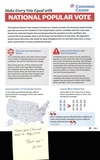
|
2022 aug 23

|
2022 aug 23

|
2022 aug 23

|
2022 aug 23

|
More... |

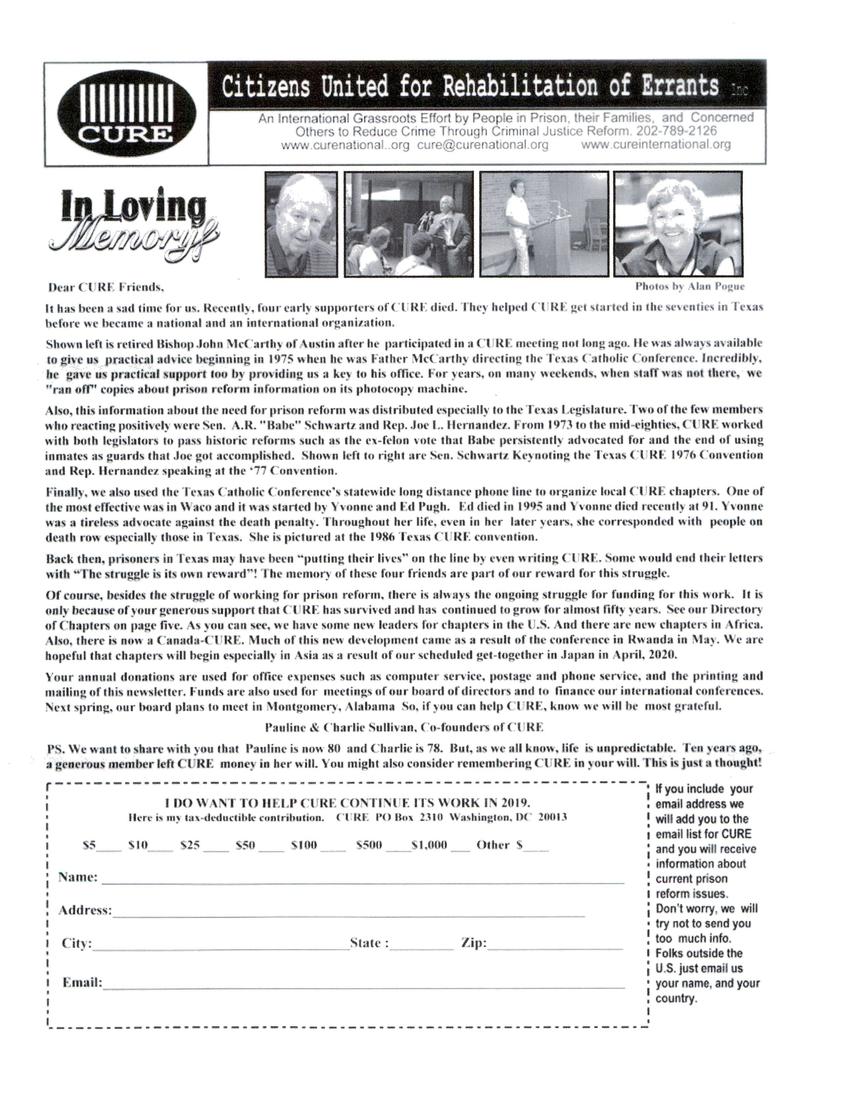
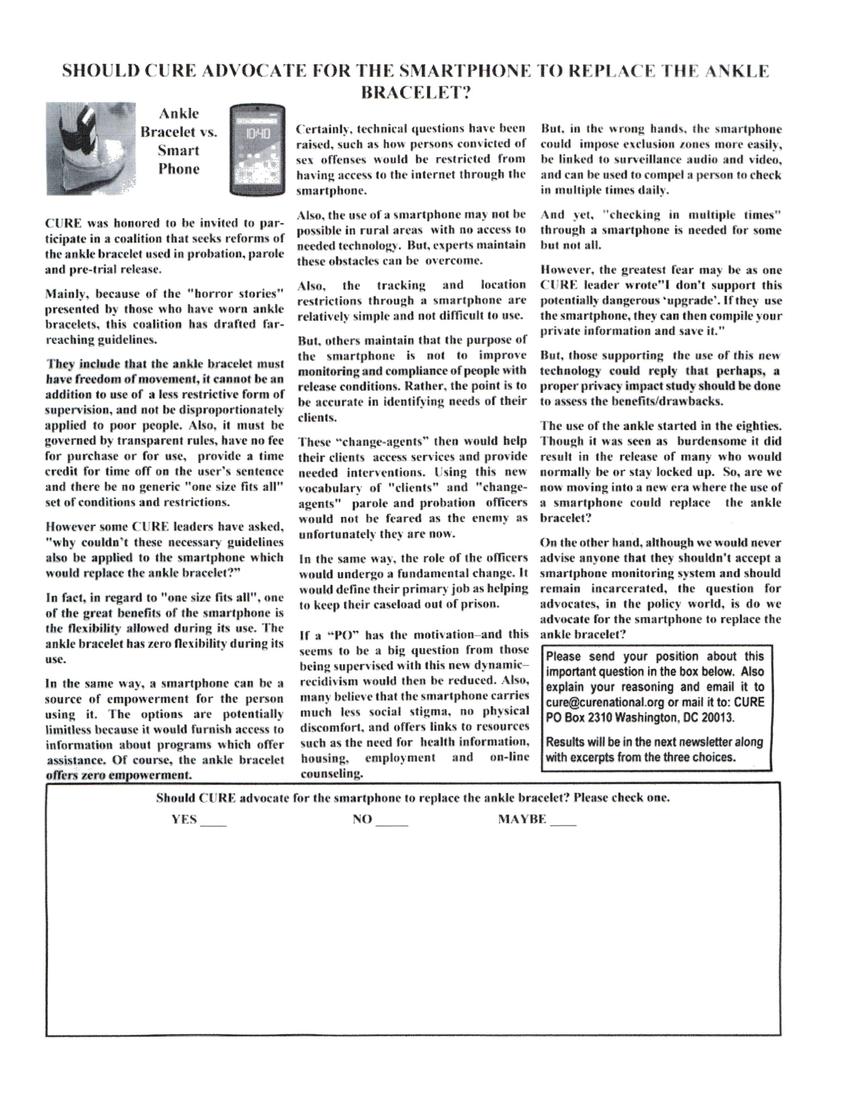
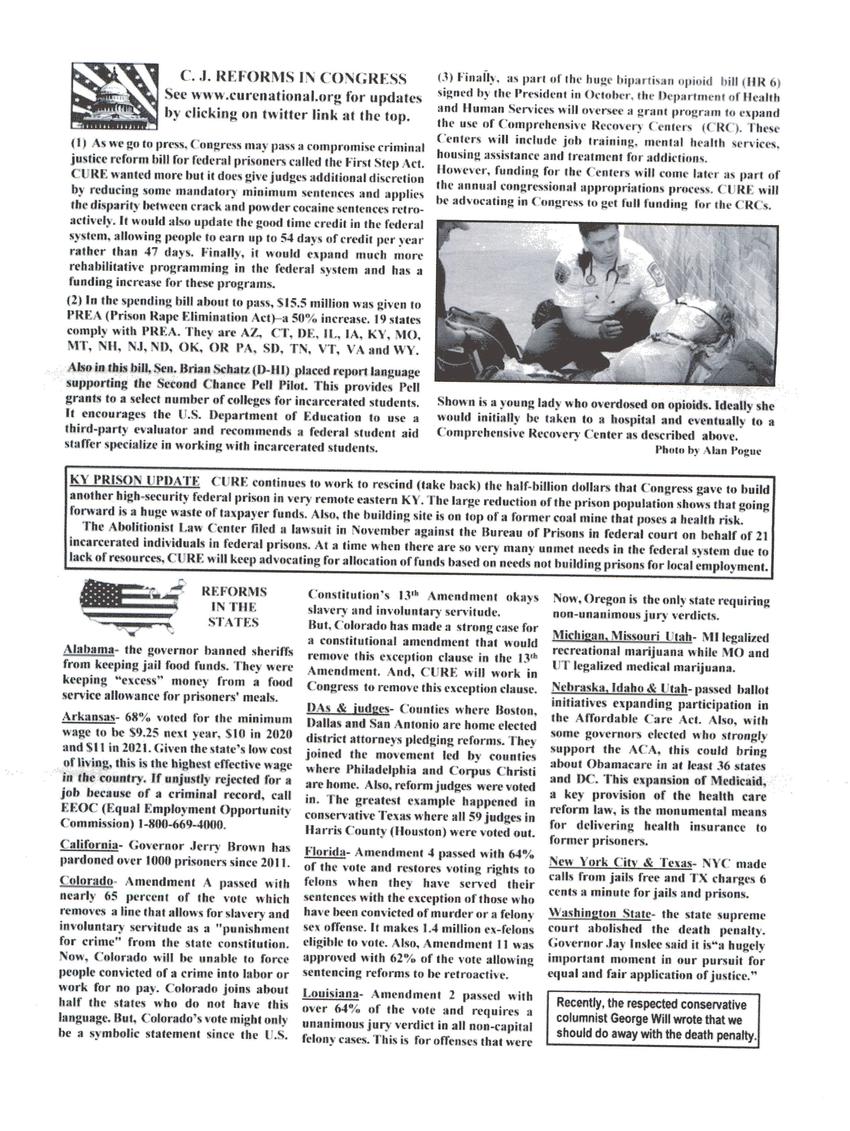
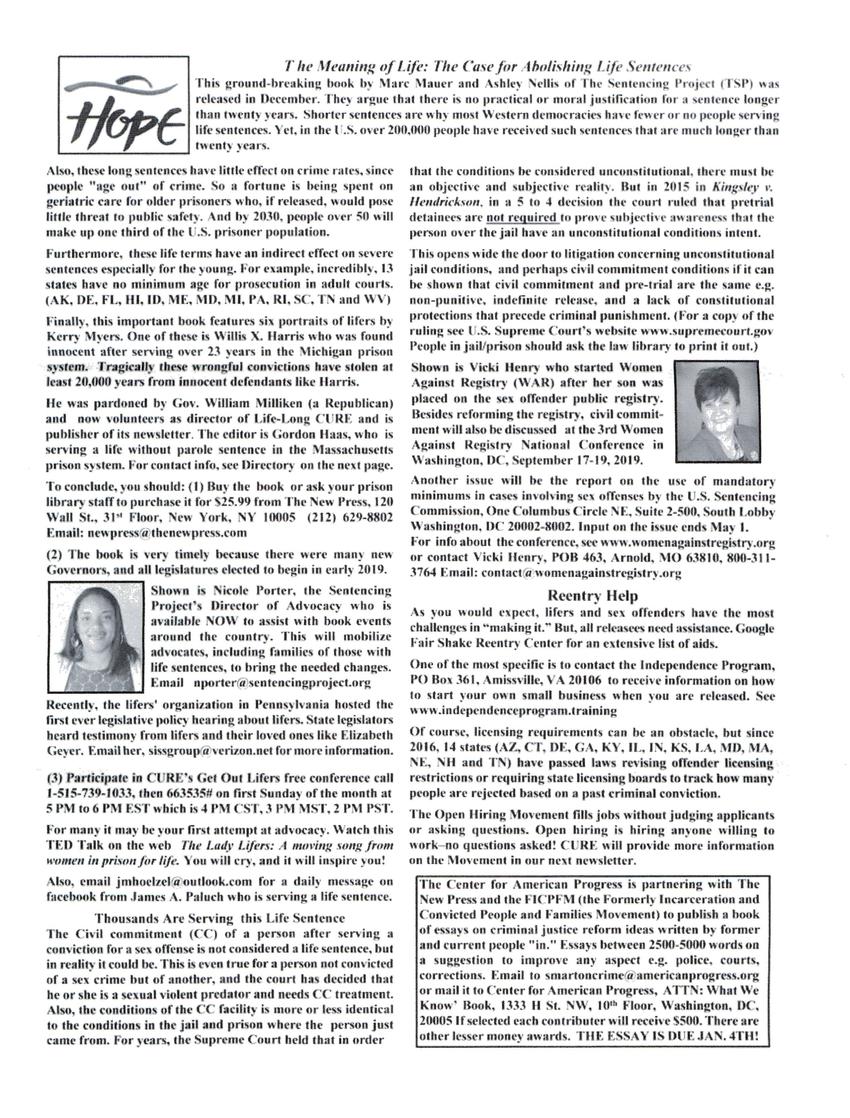
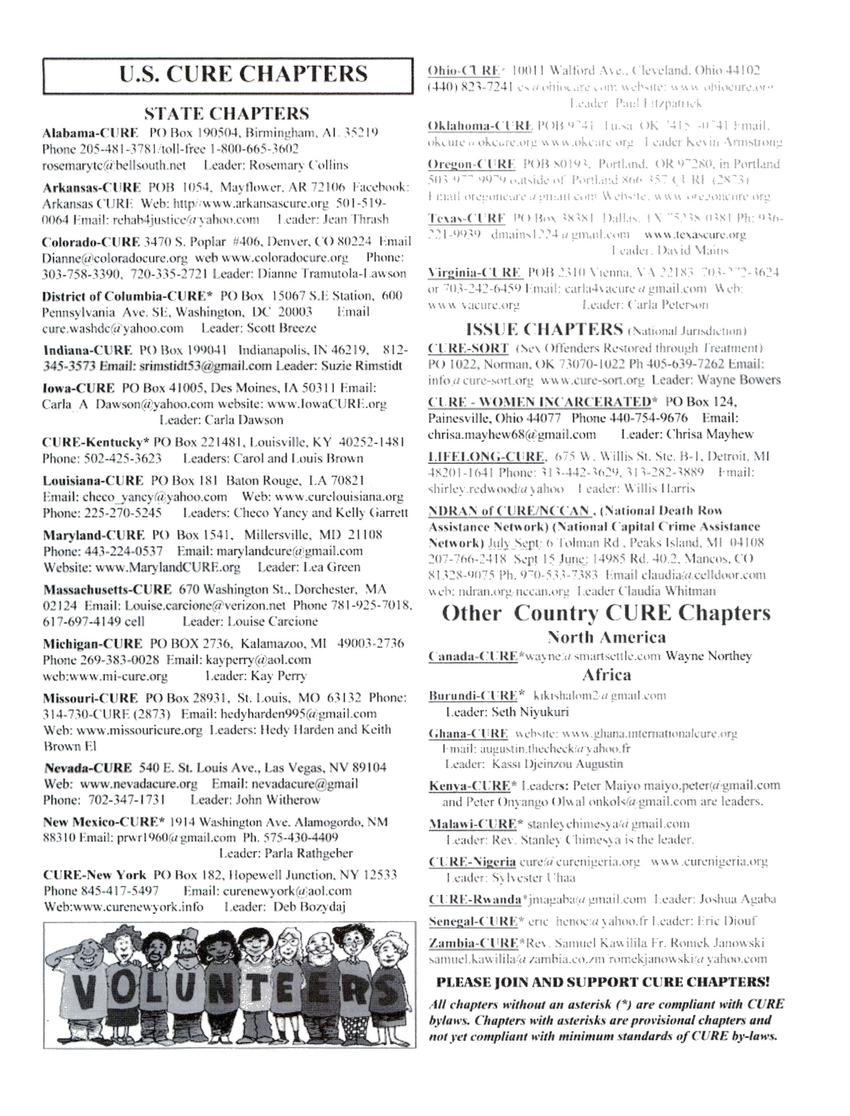
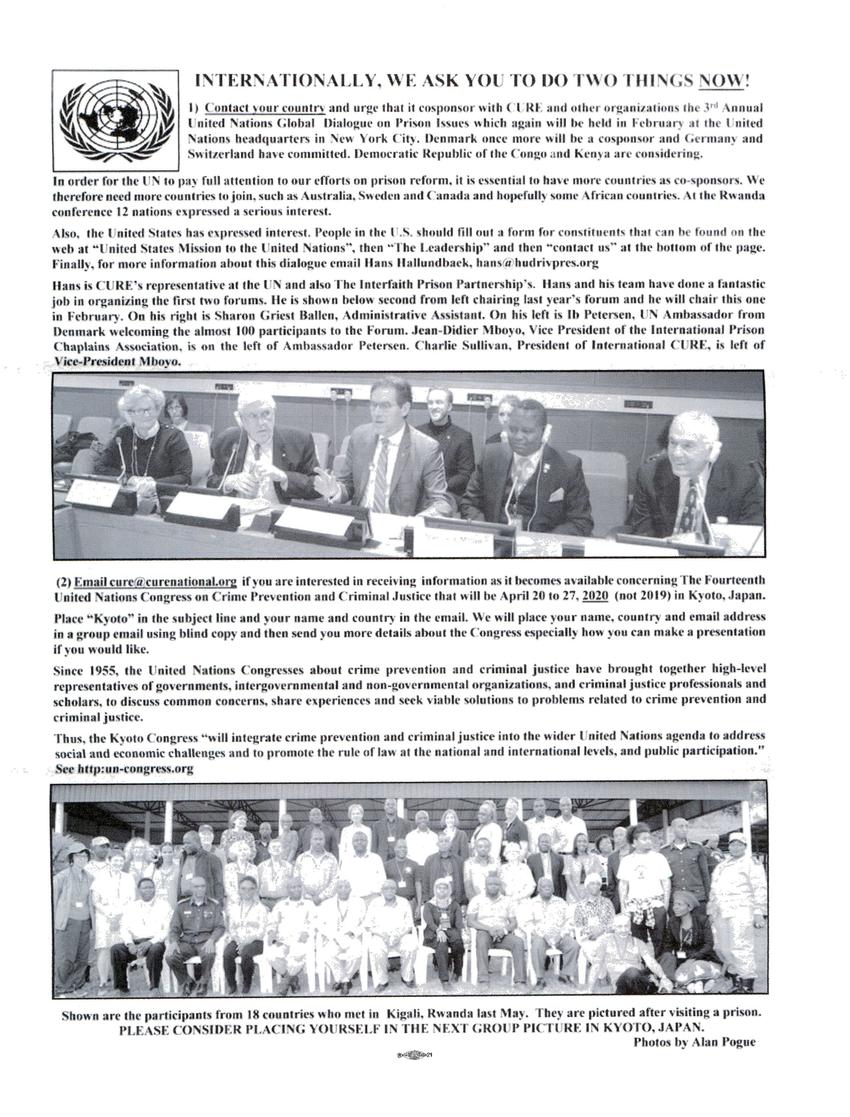

Replies (1)